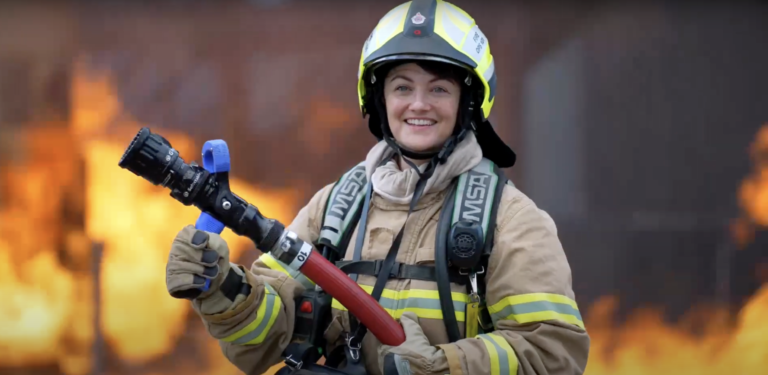Tuesday the 29th of October, 2024
Victorian Legislative Council
Rachel Payne MP made a contribution to the second reading of the Drugs, Poisons and Controlled Substances Amendment (Pill Testing) Bill 2024 in the Victorian Legislative Council. This bill establishes the legal framework for Victoria’s trial pill testing services for the purpose of harm reduction in the community.
RACHEL PAYNE (South-Eastern Metropolitan): This is not the first time we have stood in this place and debated drug checking. It is not even the first time we have stood in this place and debated a pill-testing bill. With that in mind, I would like to start by acknowledging the work of Fiona Patten and the Greens, who in 2019 introduced the first-ever co-sponsored pill-testing bill into the Victorian Parliament. It may have taken five more long years for this government to act, but it would not have been possible without their advocacy, so I say thanks.
When we at Legalise Cannabis Victoria were elected, as a party built on the idea of harm reduction, it was clear to us that drug checking must be a priority for this government. We spent time meeting with harm reduction groups who do incredible work that without a doubt got us to where we are today. This included meetings with groups like the Victorian Alcohol and Drug Association. Their statement, supported by 77 health and community agencies, called on the Victorian government to legislate a drug-checking system. Earlier this year they helped to develop a drug-checking model in Victoria in collaboration with Harm Reduction Victoria and other stakeholders.
We also met with CanTEST, who in 2020 set up Australia’s first-ever fixed pill-testing service in Canberra. We heard how in the first six months they offered 675 discussions, 85 health interventions and 614 substance tests, providing vital services to their clients. Clients were able to know what they were taking and make informed decisions, knowing what to do if the worst happened. They do not tell people it is safe or encourage them to take drugs; that is simply not what these services do. The evidence shows us that those who access drug-checking services change their behaviour to reduce their risks. It is evident that these services save lives.
I would like to acknowledge all of the individuals and stakeholders who work or volunteer their time in the harm reduction space, including Pill Testing Australia, Harm Reduction Victoria, Students for Sensible Drug Policy, YSAS and DanceWize, to name a few, whose tireless workers has seen this positive outcome. Today is your win.
Earlier this year I was extremely proud that Legalise Cannabis Victoria collaborated with the Greens and the Animal Justice Party to again introduce a bill to establish pill testing in Victoria. I would like to give a special shout-out to Georgie and Aiv – or, as we affectionately call ourselves, the ‘pingers crew’ – my good friends who worked tirelessly with sick sunglasses and a sick determination to get pill testing off the ground in Victoria.
While we waited for the government to act, we continued to raise the urgency of drug-checking services in Parliament, acknowledging that while the government dragged their feet, young Victorians continued to lose their lives. There are decades of research and lived examples from over 20 countries and domestically showing that drug-checking services save lives by preventing clients from using strong or contaminated drugs.
Drug-checking services allow for communication with people, often for the first time, about safer drug use, support services and harm reduction. They also help to detect new and dangerous substances before we see a mass overdose event. There has been a lot of work to get us to where we are today. It is unfortunate that it has taken this long to get here and so many lives have been lost. It should not have needed this much advocacy from stakeholders, multiple bills in Parliament and four coroners in six years recommending access to drug-checking services.
Turning now to the details of the bill, we are pleased to see that it will enable a drug-checking trial at fixed and mobile sites. These sites will be authorised to analyse samples and inform the client of potential risks and other factors which can contribute to harm. The presence of trained harm reduction peer workers and technical experts will further strengthen the efficacy of these services.
We are also extremely pleased to see that this bill will allow for the automatic dispensation of naloxone – something we and many of our colleagues have been calling for for some time now. I raised this issue in Parliament last month in the case of a THC vape that contained protonitazene, a synthetic opioid which is 100 times more potent than heroin. With the rise in substances like nitazenes circulating in the community, now more than ever we need access to medications to address opioid overdose.
We are concerned about whether these testing facilities will be equipped to test plant material. We know that cannabis can be contaminated with other dangerous substances, and we believe that those who use cannabis should be entitled to access these services. In the ACT the CAN-ACT study, funded by the Lambert Initiative, allows residents to anonymously submit their cannabis for testing free of charge to not only analyse cannabis content but also test for harmful contaminants like toxins, heavy metals and pesticides. Users of the service have said that it has been helpful in giving them peace of mind and helping them to better understand their own health. If these services cannot test plant material, we hope that in time, once these services become established, there will be greater investment so they can expand their testing services.
We do also have concerns about the level of detail this bill provides when it comes to police discretion not to charge clients of drug-checking services. While this bill clarifies that police have this discretion, it does nothing further to ensure that they do not target clients of drug-checking services. We have heard anecdotes from similar services overseas and from medically supervised injecting rooms that while most police officers do the right thing, there are instances where police do target clients of these services. It is our hope that, alongside this legislation in Victoria, there will be a change to police training that will provide direction on how to treat clients accessing these services.
We will be putting forward some questions in the committee-of-the-whole stage to further clarify how this is intended to roll out and raising other queries we have in relation to the bill. All it takes is one story of a friend who was singled out by the police to scare off many more who would have benefited from accessing drug-checking services.
I would like to thank Minister Stitt and her team for the ongoing engagement on this bill and drug harm reduction more broadly. A special mention must also be afforded to the Premier, who I feel has been courageous in talking openly about her concerns as a parent and how her position on drug-checking services has changed.
We congratulate this government on bringing forward this legislation and for doing so in a way that will ensure pill testing can be rolled out in time for the December festival season.
The second reading of the bill was passed with a vote of 23-16.
Related Resources
> Pill Testing and Harm Reduction – Rachel Payne
> Pill Testing trial passes in Victoria! – Rachel Payne
> Drugs, Poisons and Controlled Substances Amendment (Pill Testing Pilot for Drug Harm Reduction) Bill 2023 – Rachel Payne
> Synthetic opioid contamination requires rapid response – Rachel Payne





